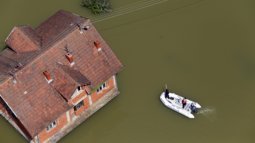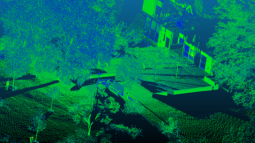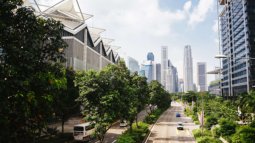WHICH OF OUR specialisations SUITS YOU BEST?
Are you ready to dive into a world of exciting possibilities? The Master’s programme in Geo-information Science and Earth Observation offers five specialisations tailored to your unique background and career interests. Each specialisation is designed to help you apply your newly gained knowledge and skills in real-world contexts.
Tailored for diverse career paths
Choose from the following themes: GeoAI, Resources Security, Disaster Resilience, and Urban & Land Futures. Each represents the future challenges, technologies, and solutions essential for our planet's and society's sustainability. These specialisations not only provide clarity on your career trajectory but also focus your studies on the latest developments in your chosen field.
A clear pathway to your career goals
Within each specialisation, all courses are thoughtfully organised to equip you with the most current knowledge and skills. This structure offers dedicated learning pathways to support your specific career goals. Some elective courses may become mandatory depending on your chosen pathway, ensuring you gain comprehensive expertise. Plus, you have the flexibility to design your learning pathway perfectly aligned with your career ambitions in collaboration with your study adviser.
Personalising Your Programme
In the first quartile of the programme, you’ll have the opportunity to select the specialisation and learning path that resonates with you the most. This personalised approach allows you to develop distinct expertise and positions you at the forefront of the geo-information and spatial data science domain you aspire to enter.







